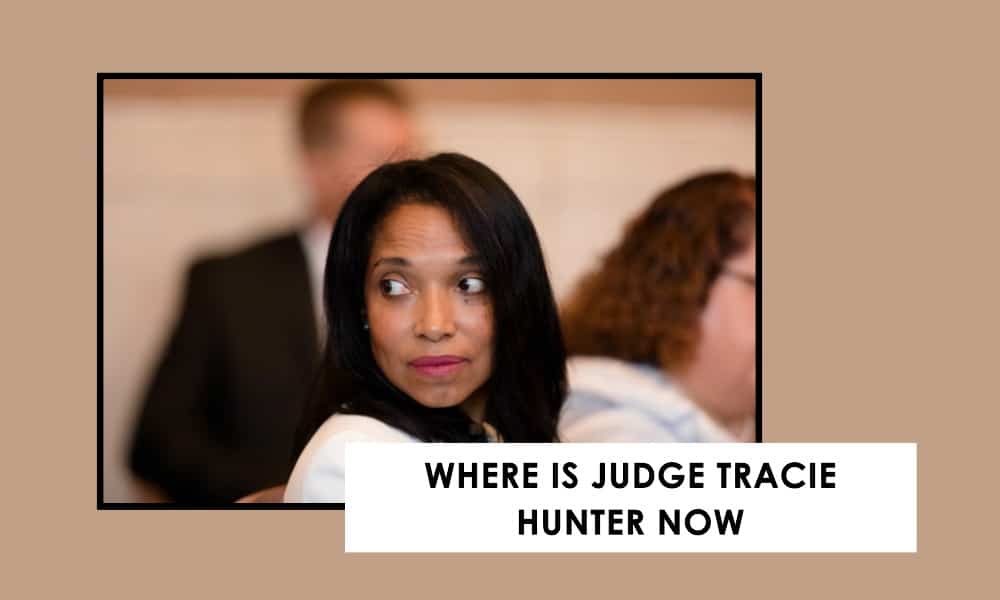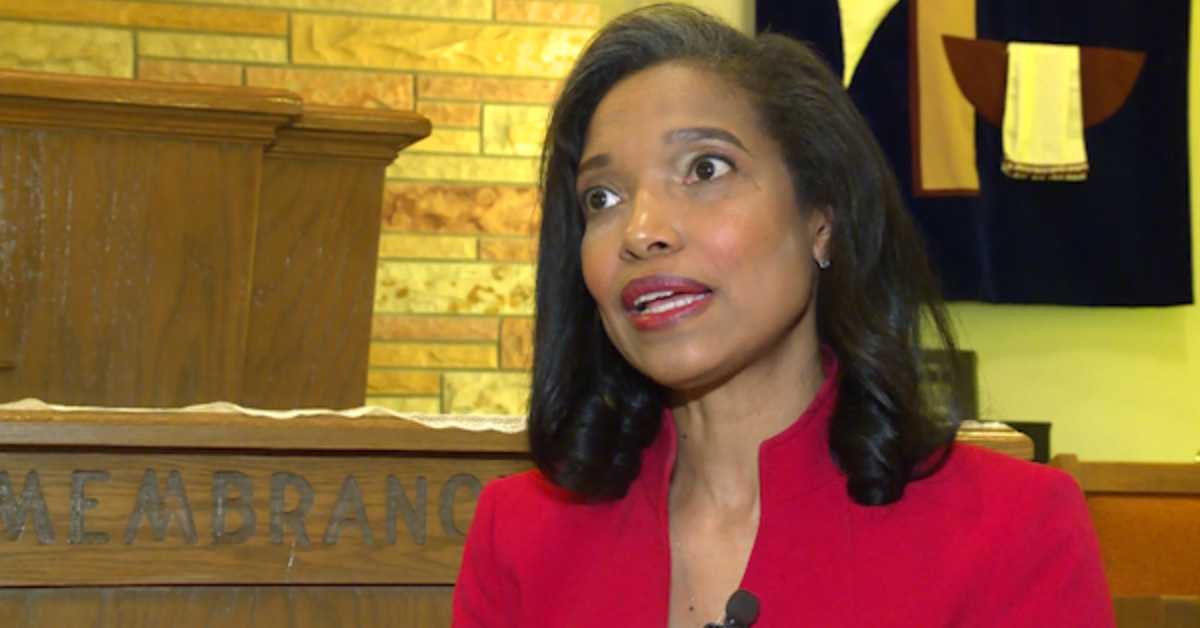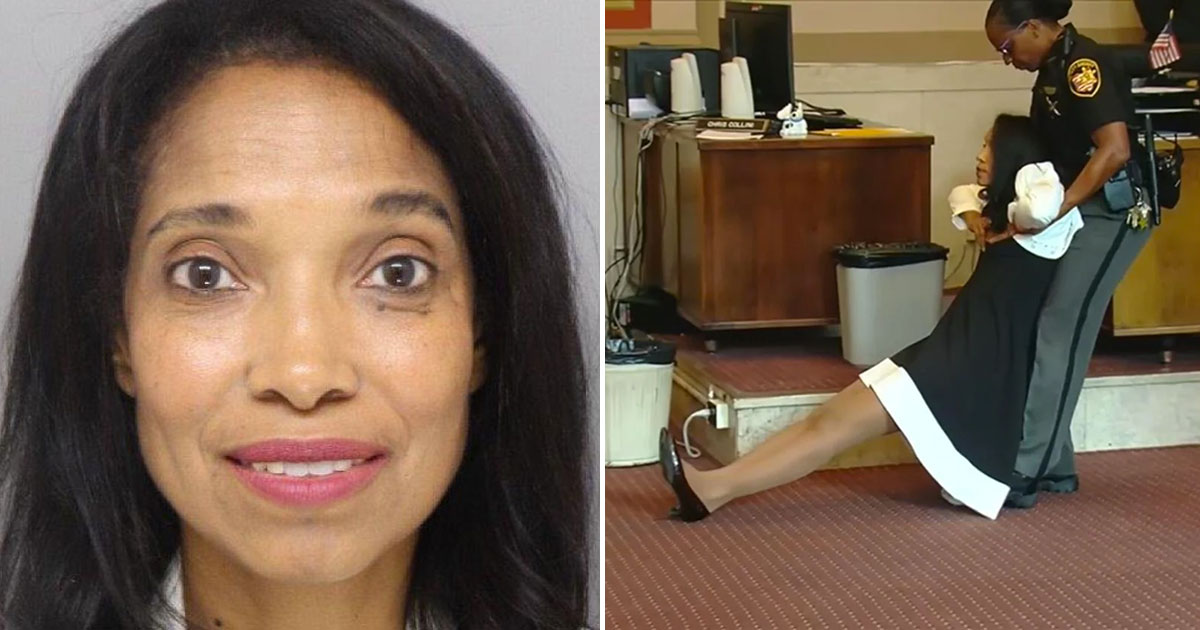Can justice truly be blind when the scales appear tipped by allegations of racial bias and political maneuvering? The case of Tracie Hunter, former Hamilton County Juvenile Court Judge, embodies this very question, igniting a fierce debate over fairness, ethics, and the pursuit of redemption within the legal system.
The story of Tracie Hunter is not just a local Ohio narrative; it's a microcosm of broader national conversations about race, power, and the enduring challenges of achieving impartiality in the justice system. Born in Cincinnati in 1966, Hunter ascended to the bench as the first African American woman to serve as a juvenile court judge in Hamilton County, Ohio. This milestone, however, was soon overshadowed by controversy. In 2014, she was convicted of having an unlawful interest in a public contract, a felony charge that stemmed from allegations she improperly shared confidential documents with her brother. The conviction led to a six-month jail sentence and, subsequently, an indefinite suspension from practicing law by the Supreme Court of Ohio. Now, years later, Hunter is fighting to reclaim her license and her reputation, asserting her innocence and claiming that her prosecution was driven by racial animus. Her case continues to draw attention, sparking discussions about judicial ethics, the complexities of the American legal system, and the potential for bias within its structures.
| Tracie Hunter: Biographical and Professional Overview | |
|---|---|
| Full Name | Tracie M. Hunter |
| Date of Birth | 1966 |
| Place of Birth | Cincinnati, Ohio |
| Occupation | Former Juvenile Court Judge, Lawyer, Pastor |
| Religious Affiliation | American Pastor at Western Hills Church of the United Brethren in Christ |
| Legal Career |
|
| Controversy & Legal Battles |
|
| Net Worth (Estimated) | Approximately $1 million - $1.5 million (as of 2024, various sources cite different estimations) |
| Reference Links: | |
| Supreme Court of Ohio Official Website (For information on court rulings and legal proceedings) |
More than eight years after her initial felony conviction, the legal saga surrounding Tracie Hunter continues to unfold. The Ohio Supreme Court has played a pivotal role, initially imposing an indefinite suspension on her ability to practice law. This suspension stemmed directly from the 2014 conviction for unlawful interest in a public contract, a charge that shook the foundations of her judicial career. The core of the allegation was that Hunter shared confidential documents with her brother, an action deemed a felony under Ohio law. Despite the conviction and the subsequent suspension, Hunter has consistently maintained her innocence, vehemently denying any wrongdoing. She has attributed her prosecution to what she describes as racially motivated targeting, a claim that has resonated with some segments of the community and fueled the ongoing debate surrounding her case. The Supreme Court, in its decision, did grant Hunter credit for the nine years she had already served under an interim suspension, a detail that adds another layer of complexity to the situation. While the court has taken decisive steps, the ultimate resolution remains uncertain, with Hunter actively pursuing avenues for reinstatement and continuing to challenge the validity of her conviction.
- Kathleen Fuld Life Lehman Amp Luxury What You Need To Know
- Charles Grodins Net Worth Exploring His Fortune Legacy
The legal complexities extend beyond the initial conviction and suspension. At one point, a circuit court of appeals reversed a jury award of $35,000, along with $546,000 in attorney's fees that had been awarded by a federal judge. This reversal underscores the intricate web of legal challenges and appeals that have characterized Hunter's case. Even after serving a prison sentence of six months in 2014, the legal battles persist. Former Hamilton County Juvenile Court Judge Tracie Hunter now seeks the restoration of her law license, a pursuit met with considerable opposition and scrutiny. Judge Norbert Nadel of Hamilton County has ruled that Hunter will not be able to remain free during the appeal of her conviction. The Ohio Supreme Court's involvement has been extensive, but their final determination on the recommendation regarding her law license remains pending. The back-and-forth between the courts highlights the contentious nature of the case and the high stakes involved for all parties. Hunter's case serves as a powerful example of how a single legal matter can generate years of litigation and public debate, touching upon fundamental questions of justice, fairness, and the rule of law.
Cincinnati has been the epicenter of this protracted legal drama, as it is both Hunter's place of birth and the jurisdiction where she served as a juvenile court judge. It was in Cincinnati that she first addressed the public after being indefinitely suspended from practicing law, using the opportunity to reiterate her claims of innocence and to challenge the fairness of the legal proceedings against her. The local news outlets have closely followed every twist and turn in the case, reporting on court hearings, rulings, and public statements made by Hunter and her supporters. The community remains divided, with some rallying behind Hunter and viewing her as a victim of racial injustice, while others believe the legal system has acted appropriately in holding her accountable for her actions. The case has sparked numerous conversations within Cincinnati about the role of race in the justice system and the potential for political influence in judicial proceedings. The deep divisions within the community reflect the broader societal tensions that often surface in high-profile legal cases involving race and allegations of corruption. As Hunter continues her fight to reclaim her professional standing, the city of Cincinnati remains a key backdrop to this ongoing narrative.
The specifics of Hunter's conviction revolve around her actions concerning her brother, who was allegedly involved in a hiring process within the juvenile court system. The charge of having an unlawful interest in a public contract stemmed from allegations that she used her position to influence the process in his favor, sharing confidential information that gave him an unfair advantage. These allegations formed the basis of the felony conviction that ultimately led to her suspension from practicing law. The prosecution argued that Hunter's actions constituted a breach of public trust and a violation of ethical standards expected of a judge. Conversely, Hunter and her defense team have argued that the evidence against her was weak and circumstantial, and that the prosecution was politically motivated. The conflicting narratives surrounding these events underscore the complexities of the case and the difficulty in definitively determining the truth. The allegations against Hunter have not only impacted her career but have also raised broader questions about ethical conduct within the judiciary and the potential for conflicts of interest to arise in public service.
- Dan Snyders Wealth From Nfl Owner To Billionaire Beyond
- Andrew Easts Net Worth Contracts Nfl Career The Untold Story
Hunter's legal team has consistently argued that the evidence used to convict her was insufficient and that the prosecution's case was built on flimsy grounds. They have pointed to inconsistencies in witness testimony and have questioned the motives of those who testified against her. Furthermore, they have raised concerns about the impartiality of the jury, suggesting that racial bias may have played a role in the verdict. These arguments form the foundation of her ongoing appeals and her efforts to have her conviction overturned. Hunter's supporters have actively campaigned on her behalf, organizing rallies, fundraising efforts, and public awareness campaigns to highlight what they believe to be injustices in her case. The legal challenges mounted by Hunter's team reflect a broader effort to expose alleged flaws in the judicial process and to seek a re-evaluation of the evidence. While the courts have thus far upheld the conviction, Hunter's legal team remains committed to pursuing all available avenues for appeal, hoping to ultimately clear her name and restore her reputation.
The indefinite suspension imposed by the Ohio Supreme Court represents a significant setback for Hunter's career, effectively barring her from practicing law in the state. However, the court's decision did include a provision that allows her to immediately apply for reinstatement, a detail that offers a glimmer of hope. The process for reinstatement typically involves a thorough review of the applicant's conduct since the suspension, as well as an assessment of their fitness to practice law. Hunter would likely need to demonstrate that she has taken steps to rehabilitate herself, to address the ethical concerns raised by her conviction, and to convince the court that she is now capable of upholding the high standards of the legal profession. The Ohio Supreme Court's ultimate decision on her reinstatement will depend on a variety of factors, including the strength of her application, the arguments presented by her legal team, and the views of the disciplinary authorities who will review her case. The path to reinstatement is likely to be challenging, but the provision allowing her to apply immediately offers a crucial opportunity for Hunter to reclaim her professional standing.
Many people are indeed curious about Tracie Hunters whereabouts and her current activities. Since her suspension and the completion of her jail sentence, she has maintained a relatively low profile, focusing primarily on her legal battles and her efforts to clear her name. She continues to be involved in her religious community, serving as a pastor at the Western Hills Church of the United Brethren in Christ. This role provides her with a platform to connect with her supporters, to share her story, and to advocate for her cause. While she has largely remained out of the public spotlight, her case continues to generate interest and debate, particularly among those who follow legal and political developments in Ohio. The question of her whereabouts is often intertwined with broader inquiries about her future prospects and her chances of successfully returning to the legal profession. As she navigates the complex process of seeking reinstatement, her supporters and detractors alike remain keenly interested in her next steps and her ultimate fate.
As of 2024, estimations of Judge Tracie Hunters net worth vary, but are generally reported to be in the range of $1 million to $1.5 million. These figures are based on publicly available information about her assets, investments, and income sources. However, it is important to note that these are only estimates, and the actual value of her net worth may differ. Her financial situation has undoubtedly been impacted by her legal battles and her suspension from practicing law. Despite these challenges, she has seemingly maintained a degree of financial stability, likely due to a combination of factors, including her religious work, potential investments, and support from her community. The reported net worth figures reflect her overall financial standing at this particular point in time, but they do not necessarily provide a complete picture of her past or future financial prospects. As she continues to pursue her legal challenges and to explore opportunities for professional advancement, her financial situation may continue to evolve.
The ongoing case of Tracie Hunter raises fundamental questions about judicial ethics and the potential for bias in the legal system. Her supporters argue that she has been unfairly targeted and that her prosecution was motivated by racial prejudice and political considerations. Conversely, her detractors maintain that she violated ethical standards and that her conviction was based on solid evidence. These conflicting perspectives highlight the complexities of determining the truth in high-profile legal cases, particularly when issues of race and power are involved. The Hunter case serves as a reminder that even in a system designed to ensure fairness and impartiality, there is always the potential for bias and for the scales of justice to be tipped. The discussions surrounding her case prompt critical reflections on the role of ethics in the judiciary and the importance of safeguarding against any form of discrimination or undue influence.
Looking ahead, the future for Tracie Hunter remains uncertain. While she has the opportunity to apply for reinstatement to the Ohio bar, the process is likely to be arduous and challenging. She will need to overcome the stigma of her felony conviction and to convince the disciplinary authorities that she is fit to practice law once again. Her chances of success will depend on a variety of factors, including the strength of her application, the support she receives from her community, and the prevailing political climate. Regardless of the outcome, the Tracie Hunter case has already left a lasting impact on the legal landscape in Ohio, raising important questions about justice, fairness, and the complexities of the American legal system. Her story serves as a cautionary tale about the potential for controversy and conflict within the judiciary and the importance of upholding ethical standards at all times.
Tracie Hunter's case is not merely a legal matter; it has evolved into a symbol for broader social and political debates. The allegations of racial bias have resonated with communities concerned about systemic inequalities within the justice system. Her supporters view her as a victim of a system that disproportionately targets minorities, while others see her case as a necessary enforcement of ethical standards for public officials. The differing perspectives underscore the deeply entrenched divisions that persist within American society regarding race, power, and the fairness of legal processes. The discussions surrounding her case often extend beyond the specifics of her conviction, touching upon broader issues of social justice and the need for reform within the criminal justice system. Tracie Hunter's story has become a rallying point for those who believe in the need for greater accountability and transparency in legal proceedings, and for those who advocate for equal treatment under the law, regardless of race or socioeconomic status.
The controversy surrounding Tracie Hunter highlights the intricate relationship between the judiciary, the public, and the media. High-profile legal cases often attract intense media scrutiny, shaping public perception and influencing the course of legal proceedings. The media's portrayal of Tracie Hunter has been multifaceted, with some outlets focusing on the legal aspects of her case, while others have emphasized the allegations of racial bias and political maneuvering. The public's perception of her has been similarly diverse, with opinions ranging from strong support to outright condemnation. The media's role in shaping public discourse about legal matters underscores the importance of responsible and objective reporting, particularly in cases that involve sensitive issues such as race and power. The Hunter case serves as a reminder that the judiciary operates within a complex ecosystem of public opinion, media coverage, and political pressures, all of which can impact the pursuit of justice.
Beyond the legal and political dimensions, Tracie Hunter's story is also deeply personal. Her journey from a respected juvenile court judge to a convicted felon has undoubtedly taken a heavy toll on her and her family. She has faced public scrutiny, financial hardship, and the loss of her professional career. Despite these challenges, she has remained steadfast in her pursuit of justice and in her efforts to clear her name. Her resilience and determination have inspired her supporters and have made her a compelling figure in the ongoing debate surrounding her case. The personal struggles faced by Tracie Hunter underscore the human cost of legal battles and the importance of empathy and understanding in navigating complex and controversial situations. Her story serves as a reminder that behind every legal case, there are real people whose lives are profoundly impacted by the decisions made within the justice system.
The legal battles of Tracie Hunter have captivated public attention, leaving many curious about her current status and future prospects. As she continues to navigate the complex process of seeking reinstatement to the Ohio bar, her case remains a subject of ongoing discussion and debate. Her supporters and detractors alike are keenly interested in her next steps and her ultimate fate. While the outcome remains uncertain, her story serves as a powerful reminder of the challenges and complexities of the American legal system, and the enduring quest for justice and fairness.



Detail Author:
- Name : Weston Ortiz
- Username : spencer.kayla
- Email : mustafa.auer@hotmail.com
- Birthdate : 1987-11-30
- Address : 5974 Alejandra Streets Suite 759 Jarredhaven, MS 55965
- Phone : +1.561.381.3388
- Company : Orn, Ankunding and White
- Job : Stone Sawyer
- Bio : Quia eum sed sed provident. At itaque modi id iusto voluptatem harum. Illo sint voluptatem illum molestias. Perspiciatis nesciunt dolore distinctio consequuntur.
Socials
facebook:
- url : https://facebook.com/sabinastrosin
- username : sabinastrosin
- bio : Beatae quia omnis vero laudantium aliquid.
- followers : 5772
- following : 2983
tiktok:
- url : https://tiktok.com/@sabina.strosin
- username : sabina.strosin
- bio : Quod error vitae est dolor. Sunt quia odit ratione expedita.
- followers : 3251
- following : 2472
instagram:
- url : https://instagram.com/sabina8222
- username : sabina8222
- bio : Quia labore qui omnis eos quidem nihil. Quis dolorem quod quo voluptas asperiores vero error.
- followers : 4390
- following : 2851
twitter:
- url : https://twitter.com/sabina6475
- username : sabina6475
- bio : Ut velit eos quos eos. Est culpa ex nam consequuntur repudiandae est. Ab temporibus voluptate suscipit qui eaque quod rerum.
- followers : 1262
- following : 769